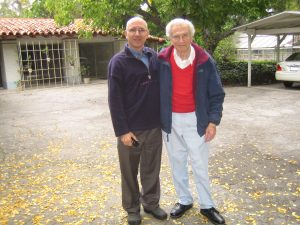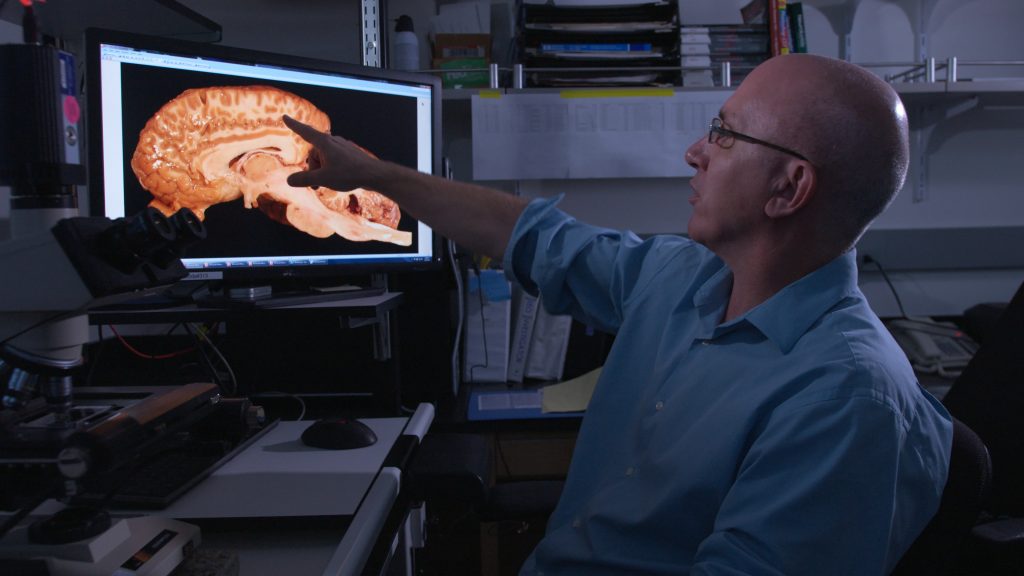
MBF Bioscience Congratulates Dr. Bob Jacobs on His 30-Year Career
Dr. Bob Jacobs has traced his 5,000th and final neuron. “It’s a good stopping point I think,” says the long-time MBF Bioscience customer, collaborator, and friend, who is retiring from research in December.
Dr. Jacobs has made significant advances in the fields of neuroanatomy and neuroethology over the course of his 30-year career. And the team at MBF Bioscience is grateful for the collaborative relationship we’ve developed together.
“I wouldn’t have been able to have done anything without MBF, without Jack’s support, without Dr. Sue Tappan’s support. Both of them worked with me very closely,” said Dr. Jacobs. “We go back a long way and it’s been amazing — the support they have provided. They’ve been there every step of the way. I’m very grateful. I would not have had a research career without MicroBrightField.”
Dr. Jacobs says that some of his most pivotal research came out of the work he did as a graduate student in Dr. Arnold B. Scheibel’s lab at the University of California, Los Angeles in the early 1990s. Extending the work of pioneering neuroscientist Dr. Marian Diamond to human tissue, Jacobs’ research with Dr. Scheibel, at UCLA highlighted the positive effects of education on dendritic extent.
“I think one of the main goals of all my research was always to make Dr. Scheibel proud of what I had done, since I was continuing in his Golgi footsteps,” explained Dr. Jacobs. “So hopefully he would be proud of what we’ve accomplished over the last 30 years.”
After joining the psychology department at Colorado College in 1993, and establishing a neuroscience major there three years later, Dr. Jacobs began comprehensive studies of pyramidal cells across different regions of the human cerebral cortex. In a 2001 paper, he reported differences between pyramidal cells in different regions of the cortex, identifying more complex cells in the prefrontal lobe.
Eventually, Dr. Jacobs’ research interests began shifting towards non-human mammalian brains. Inspired by elephant behavior scientist Dr. Joyce Poole, he began collaborating with Dr. Chet Sherwood, Dr. Patrick Hof, and Dr. Paul Manger to learn more about neuronal morphology of the African elephant brain.
“Up to that point I’d only done research on human brains. I was familiar with primate research and rodent research, but nobody had seen a cortex like the elephant cortex at that point,” Dr. Jacobs said.

Dr. Bob Jacobs and his mentor Dr. Arnold B. Scheibel
Fascinated by the elephant brain, Dr. Jacobs’ microscope was soon focusing in on brain tissue from humpback whales, manatees, giraffes, and Siberian tigers. While the type of tissue coming through Dr. Jacobs’ lab tended to fluctuate, his research methods remained stable — Golgi staining and then tracing on a Neurolucida system, which MBF Bioscience President Jack Glaser originally installed himself at Dr. Jacobs’ Colorado College lab back in the early 1990s.
“I remember my first meeting with Bob Jacobs and thinking that he was uniquely talented, enthusiastic, and had a penetrating intellect,” said Jack Glaser. “Over the course of knowing him for nearly 30 years, I’ve seen him take a path different from many researchers. He devoted his research to uncovering novel findings about the brains of many species, all while teaching undergraduates about the compelling complexity of the brain. His legacy isn’t just defined by the milestone of reconstructing over 5,000 neurons and the body of his research publications, but also through the knowledge he taught and the love for science that he imparted to hundreds of students.”
Thankfully, many more students will be able to benefit from Dr. Jacobs’ knowledge, at least for a few more years. While he is retiring from research, he does plan to continue teaching at Colorado College, and will also continue his advocacy for animal welfare. We wish him many more years of success!



